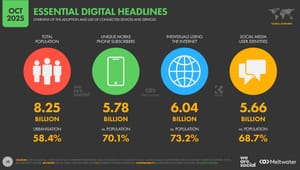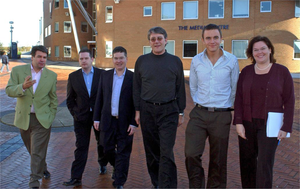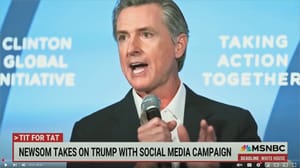An article in Creative Boom caught my attention with a headline that seemed almost perfectly crafted for social media outrage or bemusement: a UK town introduces a ‘Creative Tax’ on freelancers working from local cafés.
The story had it all – remote work tensions, quirky local government overreach, and a clear divide between café culture and co-working etiquette. A picturesque coastal town called Netherford-on-Sea had supposedly decided that laptop-tapping creatives sipping a single coffee over four hours had finally pushed things too far.
I was intrigued. I even started drafting a blog post about it.
But then something didn’t sit quite right. Netherford-on-Sea? I hadn’t heard of it, and a quick search turned up... nothing. No council listings, no local news, no Google Maps pin. Just this one story that no one else was reporting on. The only reality I found was reference to Natania Barron's 2024 novel "Netherford Hall". That’s when I noticed the article was dated 1 April 2025.
Ah.
The story is an April Fools’ spoof, and a very convincing one at that. Creative Boom – a respected publication covering the creative industries – had pulled off a subtle and clever prank. There were no winking emojis or fake quotes about taxing haikus. Just enough plausibility to make it believable.
And therein lies the point of this post.
The Lesson: Due Diligence Still Matters
We’re all moving fast these days. The temptation to respond to a compelling headline – especially one that aligns with our interests or concerns – is strong. But the Netherford-on-Sea example shows how easy it is to accept something as fact when it:
- Fits a current narrative (freelancers taking over cafés),
- Appears on a well-designed site,
- Has no immediately visible red flags,
- And crucially… is seen on April Fools’ Day.
It’s a reminder that source-checking, context, and a quick pause for reflection remain essential, not just for professional communicators and journalists, but for all of us.
This story may have been fake, but the issues it touches on – how we use shared spaces, the rise of remote work, and the evolving expectations of public versus private work environments – are very real. If anything, it shows the power of satire in prompting genuine discussion.
And perhaps that’s the best kind of April Fools’ joke – one that teaches as it entertains.
How 'due diligent' are you when it comes to checking before posting? Share your thoughts in the comments below.




















